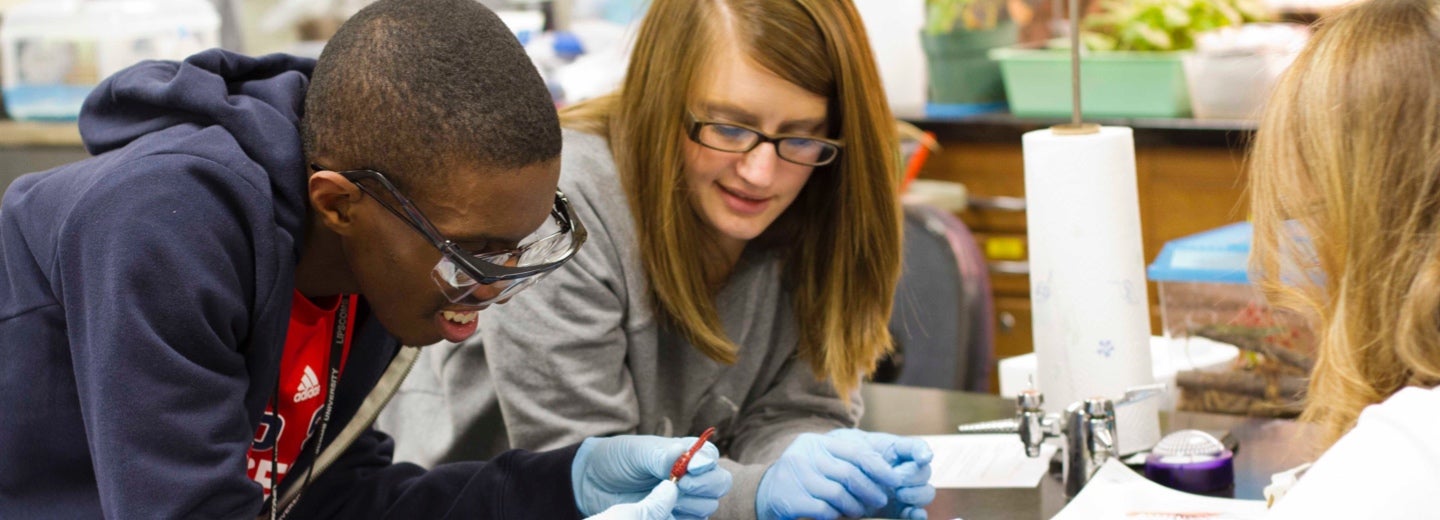Peer mentors are current Lipscomb students who volunteer to support IDEAL students in their day-to-day activities.
Peer mentors serve as study buddies, workout buddies, in-class aides, lunch or chapel buddies, and even spiritual mentors. Most of all, peer mentors are friends who love to hang out with their IDEAL student mentees!
New Peer Application Returning Peer Application
Peer Mentor Roles
Most peer mentors work one-on-one with IDEAL students to help them complete tasks, meet their goals or just enjoy college life. The activities that peer mentors and IDEAL students do together vary depending on the assigned role. Peer mentors choose one or more of the following roles:
- Study Peers: Volunteers who support IDEAL students’ academic growth. These peers help IDEAL students as they complete their Lipscomb and IDEAL coursework, and promote soft skills, such as time management and problem-solving.
- Exercise Peers: Volunteers who encourage healthy living and support growth in social skills. These peers workout with IDEAL students in the Student Activities Center, promote healthy choices and work toward fitness goals.
- Lunch or Chapel (Social) Peers: Volunteers who provide social support for IDEAL students. These peers serve as friends in these more chaotic social scenarios and support successful growth in meeting social and interpersonal goals.
- In-class Peers: Volunteers who provide in-class support for students specifically struggling with literacy, attention or motivation. These peers attend Lipscomb classes with IDEAL students and provide individual support where needed.
- Spiritual Mentors: Based on the Lipscomb Mentoring Network, these volunteers meet regularly with IDEAL students to provide spiritual support and direction, using a curriculum specifically designed with IDEAL students in mind. This peer role is optional for IDEAL students; they may elect to have a spiritual mentor.
- Evening Peers: Volunteers who provide social and/or academic support for IDEAL students after the academic day and on weekends. These peers support students in forming healthy study habits and independence skills.
